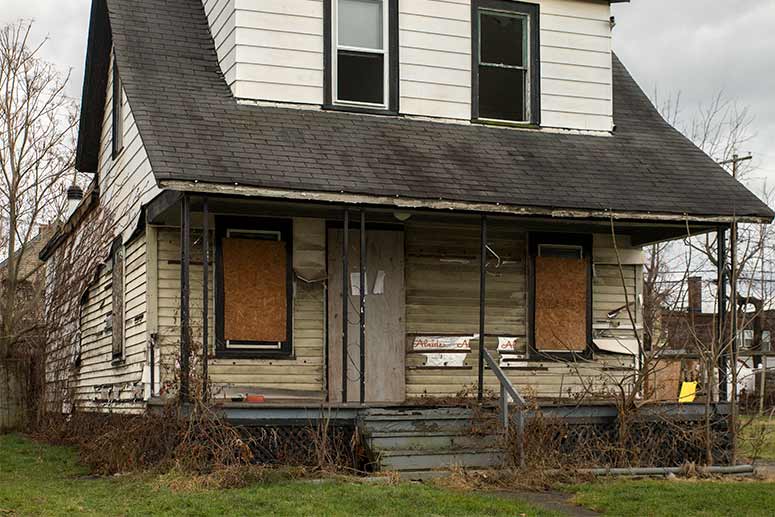Homeownership is a lot of work and if you own more than one property, the cost and time for maintenance can often become overwhelming. So, let’s look at the top three ways people become financially overextended with their properties and what to do about it.
Inheriting a home sounds like it would be a great financial windfall, but in reality, it usually ends up being a costly logistical and emotional nightmare. Inheriting a home typically falls on the heels of bad news, like a death in the family, so the prospect of financial gain is not ordinarily on the top of people’s minds. Homes that are acquired by inheritance are almost never in a condition to sell. As a result, when the time comes to sort out the inherited property it will need to be cleared out. This will require movers, multiple garage sales, or an estate sale to get the contents of the home properly delivered to inheritors or sold. Lastly, the home will need to be updated and refurbished, or sometimes repaired. This process can take months or even years to complete before the home is ready to live in or sell. We forgot to mention, this scenario is under ideal conditions. Throw in bickering siblings and relatives wrestling for their peace of the pie, contributing their own ideas and opinions of how to go about splitting up the inherited property and how to make the highest profit off of it once it sells! Because of all this, nine times out of ten, inheritors just want to sell the property as quickly as possible. To simplify the process and alleviate the stress, you can sell the property to an all cash buyer such as Gulf State Homebuyers. They can close on the sale of the home in as little as five days and will buy the house as-is so you don’t have to hassle with any renovations. All you are left with is deciding how to divide up the inheritance with your family.
An inherited home can also be the reason for owning a vacant home, but it could also be a vacation home that no longer gets use or an investment property that didn’t get the time and attention it needed to turn a profit. Homes that are intended to be rented, but for one reason or another remain unoccupied, are one of the most common types of vacant homes. Whatever the reason, a vacant home can cause a lot of financial and emotional stress. When homes sit vacant, it doesn’t take long for the structures to begin to deteriorate. This is because the basic cleaning and maintenance occupants typically perform, like picking weeds, clearing rain gutters, and raking the leaves, end up drastically extending the life of the structure. So, if no one it there to perform it, the home suffers. Basic house cleaning also keeps away pests, who will quickly move in and start eating away at the homes structure, insulation, or even the electrical systems. Any property that you are unable to maintain because of lack of time or finances needs to be sold quickly, because as the home continues to deteriorate the value will too. All cash buyers are good in this situation as well since they can quickly take the vacant property off your hands. This alleviates the two main reasons that a home sits vacant (lack of time and money), giving you the ability to sell and move on.
The last one is a big one when it comes to stress levels because it deals with the home you may currently be living in. We are talking about a damaged home! Fires, floods, and storms can often times leave the house unlivable, but even if the house is still safe to live in, the damage is likely to interfere with your ability to enjoy the house and can cause quite a few inconveniences. Cost aside, workmen and contractors coming and going throughout the day, coordinating repairs with your daily schedule, and the dust and noise of home repairs are all unpleasant at best. When this happens to you, there is another option – you could sell to an all cash buyer. Completely skip the cost and trouble of repairing the damage and let someone else handle it. At Gulf State Homebuyers we buy homes all cash, as-is, and in all conditions, even damaged. With all these scenarios, when you take into consideration the cost of repairs, upgrades, and the fees associated with selling a house, our offers are extremely competitive. So, contact us today for a free appraisal and sell your damaged, vacant, or inherited home in as little as five days!

